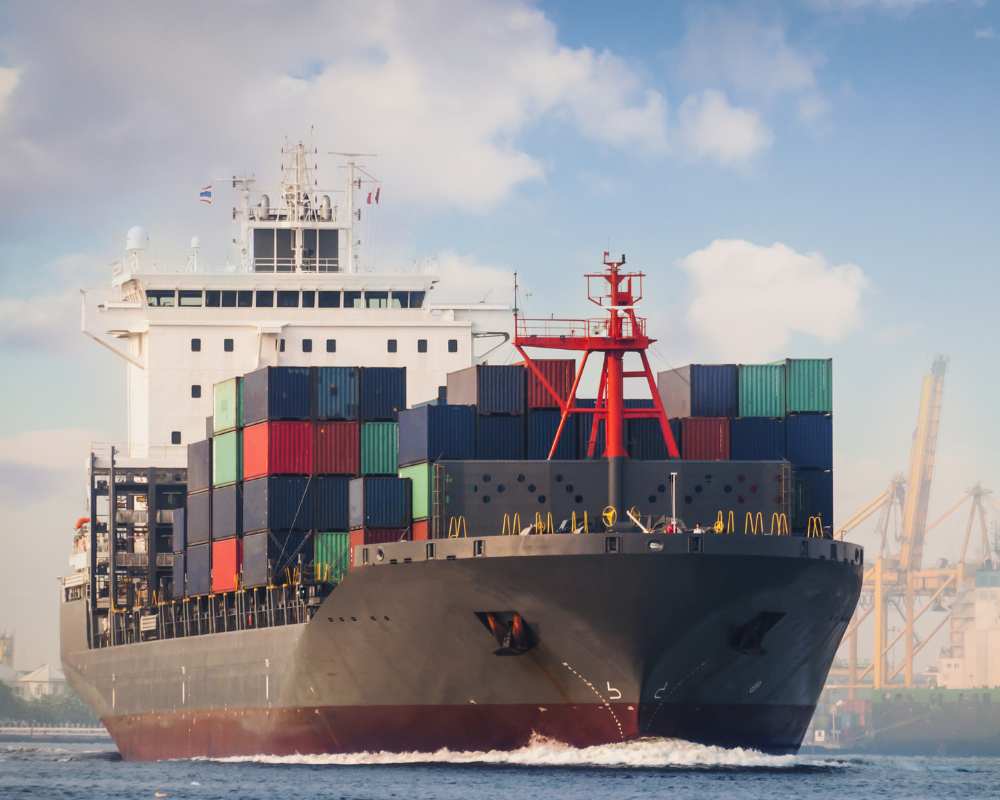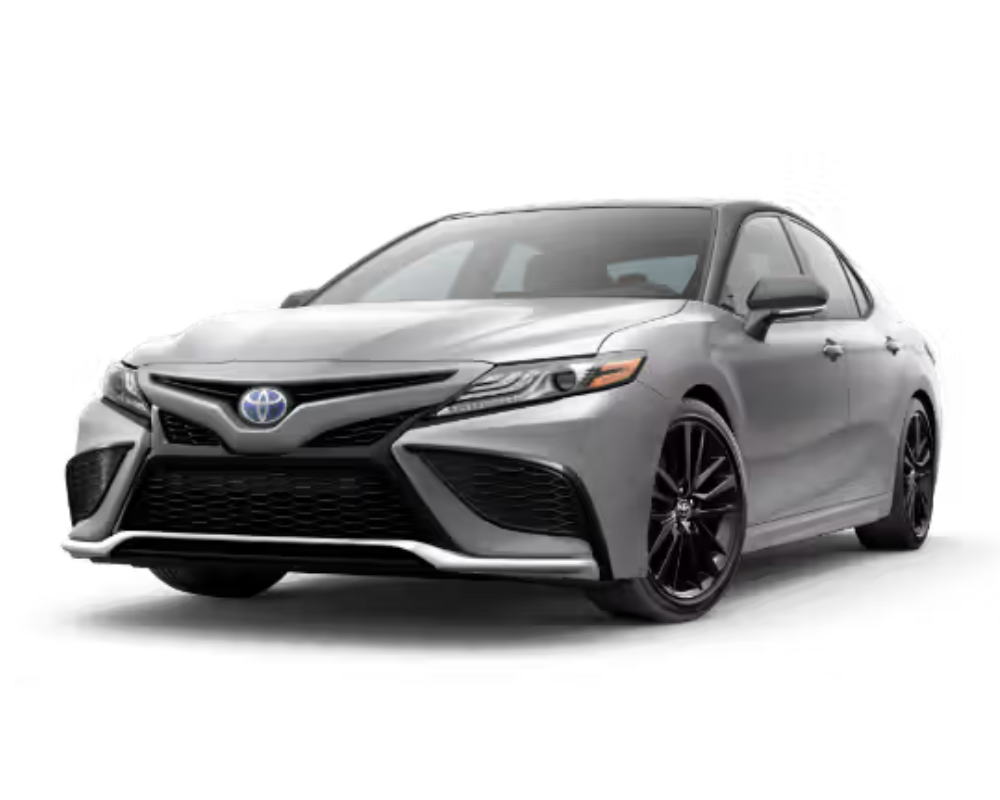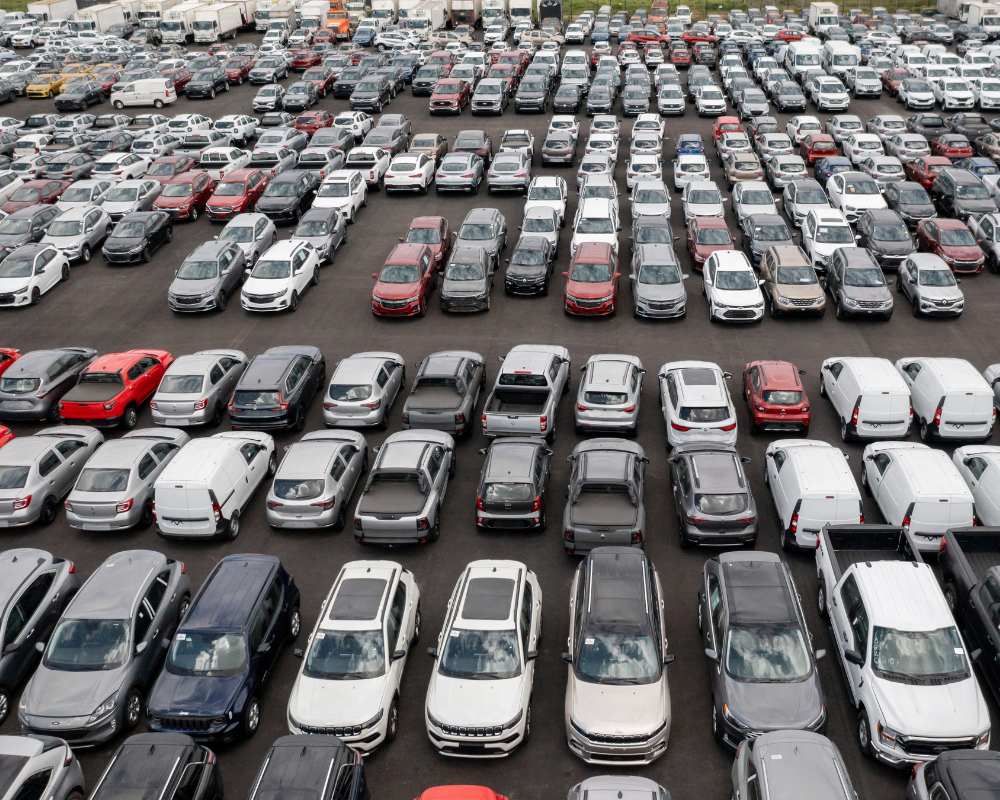Introduction
Did you know that Japanese used cars retain up to 70% of their original value after five years, compared to just 40% for vehicles from other countries? This remarkable statistic highlights why international car buyers are increasingly turning to Japan for their vehicle needs. Whether you’re a car dealer looking to expand your inventory or an individual seeking a reliable vehicle, understanding how to buy cars from Japan can unlock incredible value and quality.
Japanese used cars export has become a thriving global industry, with over 1.5 million vehicles shipped internationally each year. This comprehensive guide will walk you through everything you need to know about purchasing used cars from Japan, from understanding the superior quality standards to navigating the export process seamlessly. By the end of this article, you’ll have the knowledge and confidence to make informed decisions when entering the Japanese vehicle export market.
Why Japanese Used Cars Are the Best Investment
Superior Build Quality and Reliability
Japanese automotive manufacturers have built a worldwide reputation for producing vehicles that last. Toyota, Honda, Nissan, Mazda, and other Japanese brands consistently rank among the most reliable car manufacturers globally. This reputation isn’t just marketing – it’s backed by decades of engineering excellence and quality control processes that are unmatched in the industry.
The meticulous attention to detail in Japanese manufacturing means that even used cars from Japan often outperform newer vehicles from other markets. Japanese automakers employ rigorous quality assurance protocols at every stage of production, from sourcing materials to final assembly. This commitment to excellence translates into vehicles that experience fewer breakdowns, require less maintenance, and deliver consistent performance over their lifetime.
Japan’s Strict Maintenance Culture and Inspection System (Shaken)
One of the most significant advantages of buying Japanese used cars export vehicles is Japan’s mandatory inspection system called “Shaken.” This comprehensive vehicle inspection must be performed every two years for cars over three years old, and it’s so thorough that it often costs more than the vehicle’s remaining value for older cars.
The Shaken inspection covers everything from engine performance and emissions to safety features and structural integrity. Japanese car owners are required to maintain their vehicles to extremely high standards to pass these inspections. This cultural emphasis on proper maintenance means that reliable Japanese cars entering the export market have been meticulously cared for throughout their domestic life.
Many Japanese car owners actually replace their vehicles before major maintenance becomes necessary, simply because the cost of keeping an older car Shaken-compliant can exceed the car’s value. This practice creates an abundant supply of well-maintained vehicles perfect for export markets.

Advanced Technology and Fuel Efficiency
Japanese vehicles are renowned for incorporating cutting-edge technology and achieving exceptional fuel efficiency. From hybrid powertrains pioneered by Toyota to advanced safety systems and infotainment features, Japanese cars often lead the market in technological innovation.
This technological advantage becomes particularly valuable for international car buyers in regions where fuel costs are high or environmental regulations are strict. Japanese vehicles typically offer better fuel economy than their international counterparts, providing long-term savings that justify the initial investment in the export car process.
Lower Depreciation Rates
Japanese vehicle export vehicles hold their value exceptionally well in international markets. The combination of reliability, build quality, and brand reputation means that Japanese cars depreciate more slowly than vehicles from other origins. This characteristic makes them excellent investments for both dealers and individual buyers.
The strong resale value of Japanese vehicles also provides buyers with greater financial security. Even after years of use, these vehicles typically retain significant value, making them easier to sell when it’s time to upgrade.
Step-by-Step Process of Buying from Japan
Research and Vehicle Selection
The first step in the Japanese used cars export process is thorough research. Start by identifying your target market’s preferences, budget constraints, and regulatory requirements. Different regions have varying demands for vehicle types, features, and specifications.
Use online platforms and Japanese auto auction databases to browse available inventory. Popular auction sites like USS, TAA, and JU provide detailed information about vehicles, including condition reports, mileage, and auction grades. However, navigating these platforms requires expertise and local knowledge that professional dealers like AKIYAMA LLC can provide.
Consider factors such as:
- Vehicle age and mileage requirements in your destination country
- Emission standards and compliance requirements
- Popular brands and models in your target market
- Seasonal demand patterns
- Currency exchange rates and their impact on pricing
Working with Trusted Dealers
Partnering with an established Japan car dealer is crucial for success in the export market. Experienced dealers provide invaluable services including market knowledge, quality inspection, documentation handling, and shipping coordination.
When selecting a dealer, evaluate their track record, customer reviews, and range of services. Look for dealers who offer transparent pricing, comprehensive support, and clear communication throughout the process. AKIYAMA LLC, located in Joso City, Ibaraki Prefecture, has built a reputation for providing reliable service to international buyers worldwide.
A trusted dealer will help you navigate the complexities of the Japanese market, including understanding auction systems, negotiating prices, and ensuring compliance with both Japanese export regulations and your destination country’s import requirements.
Inspection and Verification Process
Quality inspection is a critical step in the Japanese vehicle export process. Professional dealers conduct thorough inspections to verify the vehicle’s condition, authenticity, and compliance with specifications.
The inspection process typically includes:
- Exterior and interior condition assessment
- Engine and transmission performance testing
- Electronic systems functionality checks
- Documentation verification
- Auction grade confirmation
- Mileage authenticity verification
AKIYAMA LLC employs certified inspectors who provide detailed reports with photographs, ensuring complete transparency about each vehicle’s condition before purchase.
Payment Methods and Security
Secure payment processing is essential when buying used cars from Japan. Reputable dealers offer multiple payment options while ensuring transaction security for international buyers.
Common payment methods include:
- Bank wire transfers with escrow services
- Letters of credit for large transactions
- Secure online payment platforms
- Installment payment options for qualified buyers
Always verify the dealer’s banking credentials and use secure payment methods that provide transaction protection. Avoid dealers who only accept cash payments or request payment to personal accounts.
Purchase Confirmation
Once inspection and payment are complete, you’ll receive official purchase confirmation and begin the export documentation process. This confirmation should include detailed vehicle specifications, final pricing, and expected timeline for export completion.
The purchase confirmation serves as your legal proof of ownership and is required for all subsequent export documentation. Ensure all details are accurate before proceeding with the shipping process.
Essential Documentation and Legal Requirements
Export Certificate Requirements
The export car process requires specific documentation to comply with Japanese export regulations. The primary document is the Export Certificate issued by Japanese customs authorities, which legally authorizes the vehicle’s departure from Japan.
To obtain an export certificate, you’ll need:
- Vehicle registration documents
- Proof of ownership transfer
- Customs declaration forms
- Vehicle inspection certificates
- De-registration certificates from Japanese authorities
AKIYAMA LLC handles all export certificate processing, ensuring compliance with Japanese regulations and preventing delays in the shipping process.
Bill of Lading and Shipping Documents
The Bill of Lading serves as your receipt for the shipped vehicle and legal document of title during transport. This document is essential for customs clearance in your destination country and must be presented to claim your vehicle upon arrival.
Additional shipping documents include:
- Packing lists with detailed vehicle specifications
- Commercial invoices for customs valuation
- Insurance certificates covering transport risks
- Shipping line documentation and tracking numbers
Import Permits for Destination Countries
Each destination country has specific import requirements that must be met before your vehicle can clear customs. These requirements vary significantly and may include:
- Emissions compliance certificates
- Safety standard conformity documentation
- Age restrictions and compliance statements
- Duty and tax payment arrangements
- Registration and licensing requirements
Research your destination country’s import regulations thoroughly or work with a dealer who understands these requirements. AKIYAMA LLC maintains expertise in export requirements for major destination markets worldwide.

Insurance Documentation
Comprehensive insurance coverage is essential throughout the vehicle shipping from Japan process. Insurance should cover potential risks during transport, including damage, theft, and total loss.
Types of insurance coverage include:
- Marine cargo insurance for ocean transport
- Warehouse coverage during port handling
- Comprehensive coverage for door-to-door protection
- Currency fluctuation insurance for international transactions
Customs Clearance Papers
Proper customs documentation ensures smooth clearance upon arrival in your destination country. Required documents typically include all previously mentioned paperwork plus specific forms required by destination customs authorities.
Working with experienced customs brokers or dealers with international shipping expertise can prevent costly delays and ensure compliance with all regulatory requirements.
Japan’s Quality Inspection Standards
Shaken Inspection System Explained
The Shaken inspection system is Japan’s mandatory vehicle safety and emissions inspection program. This comprehensive inspection must be performed every two years for vehicles over three years old, and it covers virtually every aspect of vehicle safety and performance.
The inspection process includes detailed checks of:
- Engine performance and emissions output
- Brake system functionality and wear
- Suspension and steering components
- Lighting and electrical systems
- Structural integrity and safety features
- Tire condition and alignment
Vehicles that fail Shaken inspection cannot be legally driven on Japanese roads until repairs are completed and the vehicle passes re-inspection. This strict system ensures that reliable Japanese cars entering the export market have been properly maintained throughout their domestic service life.
Auction Grading System
Japanese auto auction houses use a standardized grading system to evaluate vehicle condition. Understanding these grades is crucial for making informed purchasing decisions.
The grading system typically includes:
- Grade S: Nearly new vehicles with minimal wear
- Grade 5: Excellent condition with very minor wear
- Grade 4.5: Good condition with minor cosmetic issues
- Grade 4: Average condition with normal wear
- Grade 3.5: Below average condition requiring attention
- Grade 3: Poor condition requiring significant repairs
What Inspection Grades Mean
Each inspection grade provides specific information about the vehicle’s condition:
Grade S and 5 vehicles represent the highest quality available, often with low mileage and exceptional maintenance records. These vehicles command premium prices but offer the best value for buyers seeking nearly new condition.
Grade 4 to 4.5 vehicles represent good value for most buyers, offering solid condition with minor wear consistent with normal use. These vehicles typically provide the best balance of quality and price.
Grade 3 to 3.5 vehicles may be suitable for buyers with repair capabilities or those seeking lower-cost options. However, these vehicles may require immediate attention or ongoing maintenance.
How AKIYAMA LLC Ensures Quality
AKIYAMA LLC maintains strict quality standards for all vehicles in our export inventory. Our quality assurance process includes:
- Pre-purchase inspection by certified technicians
- Verification of auction grades and condition reports
- Additional mechanical and cosmetic inspections
- Detailed photographic documentation
- Transparent reporting of any identified issues
- Recommendations for vehicles that best meet customer needs
Our commitment to quality means that international car buyers can purchase with confidence, knowing that every vehicle has been thoroughly evaluated and accurately represented.
Shipping and Logistics Made Simple
RoRo vs Container Shipping Options
Vehicle shipping from Japan offers two primary transportation methods: Roll-on/Roll-off (RoRo) and container shipping. Each method has distinct advantages depending on your specific needs and budget.
RoRo Shipping involves driving vehicles directly onto specialized car carrier ships. This method is typically more cost-effective for single vehicles and offers faster loading and unloading times. RoRo shipping is ideal for standard passenger vehicles and provides reliable service to major ports worldwide.
Container Shipping involves loading vehicles into secure containers for transport. This method offers better protection from weather and handling damage, making it preferable for valuable or classic vehicles. Container shipping also allows for additional cargo and provides enhanced security during transport.
Shipping Timeframes to Major Destinations
International car shipping timeframes vary depending on destination and shipping method:
- Asia-Pacific destinations: 1-3 weeks
- Middle East and Africa: 3-4 weeks
- Europe: 4-6 weeks
- North America: 3-5 weeks
- South America: 5-7 weeks
- Oceania: 2-4 weeks
These timeframes include port processing, customs clearance, and delivery to final destinations. AKIYAMA LLC provides detailed shipping schedules and tracking information to keep customers informed throughout the process.
Port Handling and Customs
Professional port handling ensures your vehicle receives proper care during loading, transport, and unloading. Experienced logistics partners provide comprehensive services including:
- Secure vehicle storage before and after shipping
- Professional loading and unloading procedures
- Customs documentation processing
- Inspection and damage assessment
- Delivery coordination to final destinations
Delivery to Final Destination
Complete door-to-door delivery service eliminates the complexity of arranging final transport from arrival ports. This service includes:
- Customs clearance and documentation processing
- Local transport arrangement from port to destination
- Vehicle inspection and handover
- Registration and licensing assistance where applicable
- After-delivery support and warranty services
Why Choose AKIYAMA LLC
Years of Experience in Vehicle Export
AKIYAMA LLC has established itself as a trusted leader in the Japanese used cars export industry through years of dedicated service to international customers. Our experience spans multiple vehicle categories, from economy cars to luxury vehicles, and we understand the unique requirements of different international markets.
Our team’s deep knowledge of Japanese automotive culture, auction systems, and export procedures enables us to provide superior service that consistently exceeds customer expectations. We’ve successfully completed thousands of export transactions, building a reputation for reliability, transparency, and customer satisfaction.
Transparent Pricing and No Hidden Fees
We believe in complete transparency in all our transactions. Our pricing structure is straightforward and comprehensive, with no hidden fees or unexpected charges. When you receive a quote from AKIYAMA LLC, it includes all costs associated with your vehicle purchase and export.
Our transparent pricing covers:
- Vehicle purchase price
- Auction fees and handling charges
- Inspection and documentation costs
- Export processing fees
- Shipping and logistics charges
- Insurance coverage
- Customs processing fees
Full-Service Support from Purchase to Delivery
AKIYAMA LLC provides comprehensive support throughout the entire export car process. Our full-service approach means you have a single point of contact for all aspects of your vehicle purchase and export.
Our services include:
- Market research and vehicle selection assistance
- Professional inspection and quality verification
- Secure payment processing and transaction management
- Complete documentation and legal compliance handling
- Shipping coordination and logistics management
- Customs clearance and delivery arrangement
- Post-delivery support and warranty services
Multilingual Customer Service
Our multilingual customer service team ensures clear communication throughout your vehicle export experience. We provide support in multiple languages, making the process accessible to international buyers regardless of their language preferences.
Our customer service standards include:
- Prompt response to inquiries and requests
- Clear communication about process status and timelines
- Detailed explanations of procedures and requirements
- Proactive updates on shipping and delivery progress
- Comprehensive after-sales support and assistance
Strong Network of International Partners
AKIYAMA LLC has developed strong relationships with logistics partners, shipping companies, and customs brokers worldwide. This network enables us to provide reliable service to virtually any destination and ensures smooth processing in both Japan and destination countries.
Our international network includes:
- Certified shipping lines with global coverage
- Experienced customs brokers in major markets
- Reliable transport companies for final delivery
- Insurance providers with comprehensive coverage
- Local partners who understand regional requirements
Customer Success Stories
Success Story 1: African Market Expansion
James, a car dealer from Kenya, partnered with AKIYAMA LLC to expand his inventory with reliable Japanese cars. Initially skeptical about the Japanese vehicle export process, James was impressed by our transparent communication and quality assurance procedures.
“I was hesitant to buy cars from Japan without seeing them first, but AKIYAMA LLC’s detailed inspection reports and photographs gave me complete confidence. The first shipment of 15 vehicles arrived exactly as described, and they sold quickly in our local market. The quality was exceptional, and my customers immediately noticed the difference. We’ve now completed over 200 vehicle transactions with AKIYAMA LLC, and they’ve become our primary supplier.”
Success Story 2: Individual Buyer Success
Maria from Chile needed a reliable family vehicle and discovered that buying cars from Japan offered better value than local options. Despite initial concerns about the international purchase process, AKIYAMA LLC’s customer service team guided her through every step.
“The process was much simpler than I expected. AKIYAMA LLC handled everything from finding the right vehicle to arranging delivery to my city. The Toyota Prius I purchased was in perfect condition and has been incredibly reliable. I saved over $8,000 compared to buying locally, and the fuel efficiency has provided ongoing savings. I’ve recommended AKIYAMA LLC to several friends who have also had excellent experiences.”
Success Story 3: Luxury Vehicle Import
David, a luxury car collector from Australia, required a specific model that was difficult to find in his local market. AKIYAMA LLC’s expertise in the Japanese auto auction system enabled them to locate and secure the exact vehicle he needed.
“Finding a 1995 Toyota Supra in pristine condition seemed impossible until I contacted AKIYAMA LLC. Their auction expertise and network enabled them to locate exactly what I was looking for. The vehicle arrived in exceptional condition, and the entire process was professionally managed. The value I received far exceeded my expectations, and I continue to work with AKIYAMA LLC for my automotive needs.”
Conclusion and Call-to-Action
Japanese used cars export represents an exceptional opportunity for international buyers seeking reliable, high-quality vehicles at competitive prices. The combination of superior Japanese manufacturing standards, strict maintenance culture, and professional export services creates unmatched value in the global automotive market.
Throughout this comprehensive guide, we’ve explored every aspect of the Japanese vehicle export process, from understanding quality standards to navigating shipping logistics. The key to success lies in partnering with experienced professionals who understand both the Japanese market and international export requirements.
AKIYAMA LLC stands ready to be your trusted partner in accessing the exceptional value of used cars from Japan. Our years of experience, commitment to transparency, and comprehensive service approach ensure that your vehicle export experience will be smooth, secure, and successful.
Whether you’re a dealer looking to expand your inventory, an individual seeking a reliable vehicle, or a collector searching for specific models, AKIYAMA LLC has the expertise and resources to meet your needs. Our team understands that each customer has unique requirements, and we customize our services to ensure your complete satisfaction.
Don’t let the complexity of international vehicle purchase deter you from accessing the exceptional value of Japanese vehicles. Contact AKIYAMA LLC today to begin your journey toward owning a high-quality Japanese vehicle.
Ready to get started? Contact AKIYAMA LLC today:
📧 Email: akiyamayasitha@gmail.com
📞 Phone: +81-80-6886-4141
📍 Address: 81-2 Osawa Shinden, Joso City, Ibaraki Prefecture, Japan
Our experienced team is ready to answer your questions, provide detailed information about available inventory, and guide you through the entire export process. Join thousands of satisfied customers who have discovered the exceptional value of Japanese used cars export with AKIYAMA LLC.
Frequently Asked Questions
Q1: How long does the entire process take from purchase to delivery? A: The complete process typically takes 4-8 weeks depending on your destination country and shipping method. This includes vehicle preparation, export documentation, shipping time, and customs clearance.
Q2: What is the minimum order quantity for vehicle exports? A: AKIYAMA LLC accepts orders for single vehicles as well as bulk shipments. There is no minimum order quantity, making our services accessible to both individual buyers and large dealers.
Q3: Are there age restrictions for exported vehicles? A: Age restrictions vary by destination country. Most countries accept vehicles up to 15 years old, while some have stricter limits. We’ll advise you on specific requirements for your destination.
Q4: What payment methods do you accept? A: We accept bank wire transfers, letters of credit, and secure online payment platforms. All payments are processed through secure channels with transaction protection.
Q5: Do you provide warranty coverage for exported vehicles? A: Yes, we offer warranty options for exported vehicles. Coverage terms vary depending on vehicle age and condition, and we’ll explain all available options during the purchase process.
Q6: Can you help with vehicle registration in my country? A: While we don’t directly handle registration, we provide all necessary documentation and can recommend trusted partners in your destination country who specialize in vehicle registration and licensing.
Q7: What happens if my vehicle is damaged during shipping? A: All vehicles are covered by comprehensive marine insurance during transport. In the unlikely event of damage, we’ll work with insurance providers to resolve claims quickly and ensure your satisfaction.







